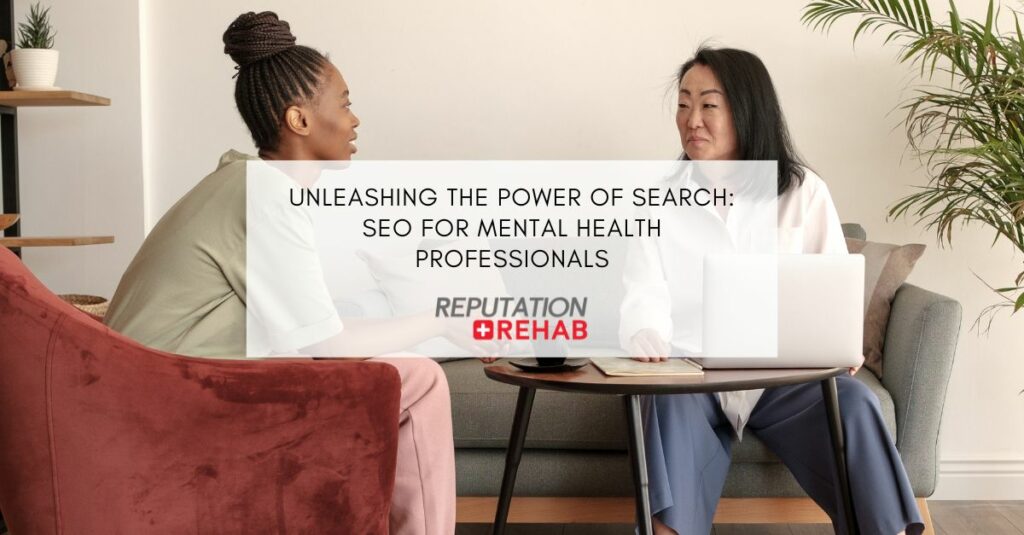In today’s digital age, having a strong SEO for mental health professionals is crucial when trying to reach individuals in need of their services. Search engine optimization (SEO) plays a vital role in improving the visibility of mental health professionals’ websites and attracting relevant traffic. This article explores effective SEO strategies tailored specifically for mental health professionals, enabling them to expand their reach and help more individuals seeking support.
Conducting Keyword Research to Understand Search Intent
Keyword research is the foundation of successful SEO. It involves identifying the search terms and phrases that individuals use when seeking mental health support online. Conduct thorough keyword research to understand the search intent behind these queries. Focus on keywords that align with your specialization, such as “anxiety counseling,” “depression therapy,” or “relationship counseling.” Incorporate these keywords strategically throughout your website to improve its visibility in search engine results.
Optimizing Website Structure and On-Page Elements
A well-structured website and optimized on-page elements are essential for effective SEO. Ensure your website is user-friendly and easy to navigate, with clear categories, menus, and relevant page URLs. Optimize your meta titles, meta descriptions, header tags, and image alt tags with targeted keywords. Make sure your website is mobile-friendly and optimized for fast loading speed. These optimizations improve both user experience and search engine rankings.
Creating Engaging and Informative Content
Content creation is a powerful tool for mental health professionals to establish their expertise and attract organic traffic. Develop engaging and informative content that addresses common mental health concerns, provides helpful insights, and offers practical advice. Consider creating blog posts, articles, videos, or podcasts that resonate with your target audience. Use keywords naturally within your content to enhance its visibility in search results and provide value to your readers.
Building High-Quality Backlinks for Authority
Building high-quality backlinks from reputable websites is crucial for establishing authority and credibility. Seek opportunities to collaborate with other mental health professionals, contribute guest articles to relevant publications, or participate in industry forums. These backlinks signal to search engines that your website is a trusted source of information, improving your search engine rankings and attracting more relevant traffic.
Optimizing for Local Search to Attract Nearby Clients
For mental health professionals targeting a specific geographic area, local SEO is essential. Optimize your website for local keywords, such as “mental health professional + city/region”. Create a Google My Business profile and ensure it is complete and accurate. Encourage clients to leave reviews, as positive reviews can enhance your local SEO rankings. Additionally, list your practice in relevant local directories and ensure consistent NAP (name, address, phone number) information across all platforms.
Enhancing User Experience for Better SEO Performance
User experience is a critical factor in SEO success. Ensure your website is easy to navigate, visually appealing, and provides relevant information. Improve page load speed, optimize for mobile devices, and implement clear call-to-action buttons to guide visitors. User-friendly websites not only satisfy visitors but also positively impact search engine rankings.
Monitoring and Analyzing SEO Efforts
Monitoring and analyzing SEO efforts is essential to measure the effectiveness of your strategies. Utilize web analytics tools to track website traffic, user behavior, conversion rates, and keyword rankings. Assess the performance of your backlinks and identify opportunities for improvement. Regularly review and analyze this data to refine your SEO strategies and make data-driven decisions for better results.
Staying Up-to-Date with SEO Trends in the Mental Health Field
SEO is a dynamic field, and staying updated with the latest trends is crucial. Keep track of industry-specific SEO trends and algorithm updates that may impact mental health professionals. Follow reputable SEO blogs, participate in webinars or conferences, and engage in professional communities to stay informed. Adapting your SEO strategies to current trends ensures your website remains competitive and visible in search engine rankings.

Embrace SEO to Expand Your Reach as a Mental Health Professional
By implementing effective SEO strategies, mental health professionals can improve their online visibility, attract relevant traffic, and expand their reach to help individuals seeking mental health support. Through thorough keyword research, website optimizations, engaging content creation, building high-quality backlinks, optimizing for local search, enhancing user experience, monitoring SEO efforts, and staying up-to-date with SEO trends, mental health professionals can unlock the power of search and make a significant impact in the digital landscape.

